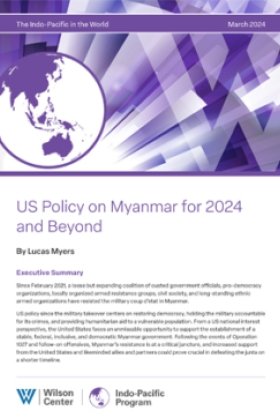10th Annual Czech and Slovak Freedom Lecture: Commemorating the 20th Anniversary of the Velvet Revolution
Mirek Topolanek remarked that, at the 20th anniversary of the Velvet Revolution, the democratic development of the Czech Republic is entering uncharted territory. To date, the Czech Republic and Slovakia have been governed democratically for a record 20 years. Although the legend of Tomas Masaryk is often remembered as the golden age of democratic thought, the first and second republics proved to be only an intermediate step to the authoritarian Communist period. "Twenty years is just the ‘half time,'" Topolanek argued, and the next two decades should be spent ensuring that the new generations continue to appreciate the sacrifices their parents made for freedom and democracy.
Overview
Mirek Topolanek remarked that, at the 20th anniversary of the Velvet Revolution, the democratic development of the Czech Republic is entering uncharted territory. To date, the Czech Republic and Slovakia have been governed democratically for a record 20 years. Although the legend of Tomas Masaryk is often remembered as the golden age of democratic thought, the first and second republics proved to be only an intermediate step to the authoritarian Communist period. "Twenty years is just the ‘half time,'" Topolanek argued, and the next two decades should be spent ensuring that the new generations continue to appreciate the sacrifices their parents made for freedom and democracy.
Given the Czech Republic's difficult path to democracy, 20 years offers an important vantage point from which to assess progress, and to review what risks, if any, remain of backsliding on the spirit and ideals of 1989. Topolanek argued that although the current regime has already surpassed the Masaryk era in many ways, the Czech Republic has not yet reached an optimal level of democratic maturity. The greatest threat to democratic consolidation in the country, the speaker suggested, is that citizens may forget about the prior existence of a totalitarian regime. Moreover, the government must work to curb doubt on the part of individuals who fought for democracy and freedom but who do not believe that those ideals have been realized in order to thwart public disillusionment.
Czech citizens have not quite embraced the fundamental truth about freedom, which suggests that the Czech Republic has not yet completed its transition to democracy. Freedom, Topolanek asserted, requires increased individual responsibility, rather than a continued reliance on the state, in order for citizens to achieve well-being. Internal threats to freedom, such as apathy, are much more menacing to the Czech Republic and Slovakia than any external efforts to undermine the countries' democratic development. Any return to totalitarianism, he cautioned, will occur slowly, through the proliferation of totalitarian values.
Under Communism, Czechoslovakia's existence mirrored the cruel reality of George Orwell's 1984. That nightmare, in which no one took responsibility for their own well being, and no one could question government policy came to an end 20 years ago. The relegation of that regime to history, Topolanek concluded, indicates that so much has changed already—which is indeed something to celebrate.
Speaker
Mirek Topolanek
Read MoreHosted By

Global Europe Program
The Global Europe Program is focused on Europe’s capabilities, and how it engages on critical global issues. We investigate European approaches to critical global issues. We examine Europe’s relations with Russia and Eurasia, China and the Indo-Pacific, the Middle East and Africa. Our initiatives include “Ukraine in Europe” – an examination of what it will take to make Ukraine’s European future a reality. But we also examine the role of NATO, the European Union and the OSCE, Europe’s energy security, transatlantic trade disputes, and challenges to democracy. The Global Europe Program’s staff, scholars-in-residence, and Global Fellows participate in seminars, policy study groups, and international conferences to provide analytical recommendations to policy makers and the media. Read more

Cold War International History Project
The Cold War International History Project supports the full and prompt release of historical materials by governments on all sides of the Cold War. Through an award winning Digital Archive, the Project allows scholars, journalists, students, and the interested public to reassess the Cold War and its many contemporary legacies. It is part of the Wilson Center's History and Public Policy Program. Read more
Thank you for your interest in this event. Please send any feedback or questions to our Events staff.









